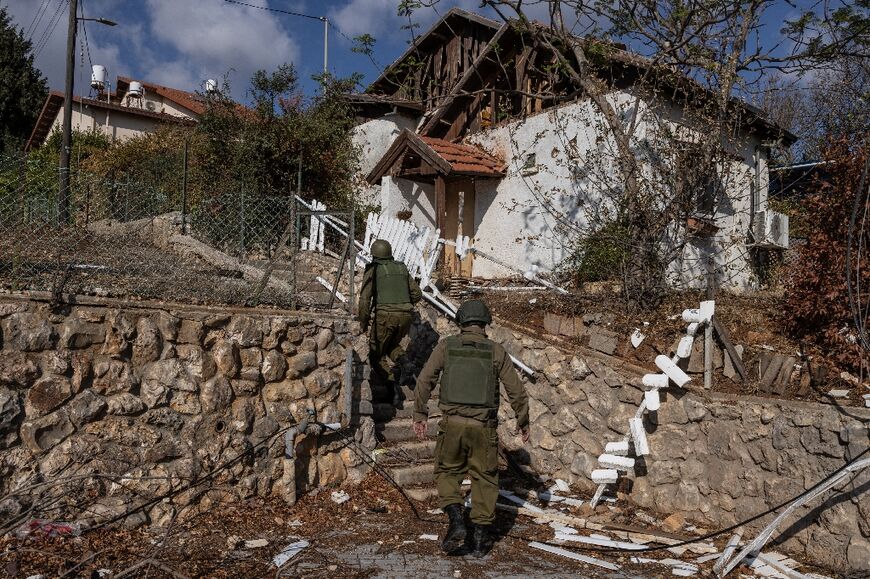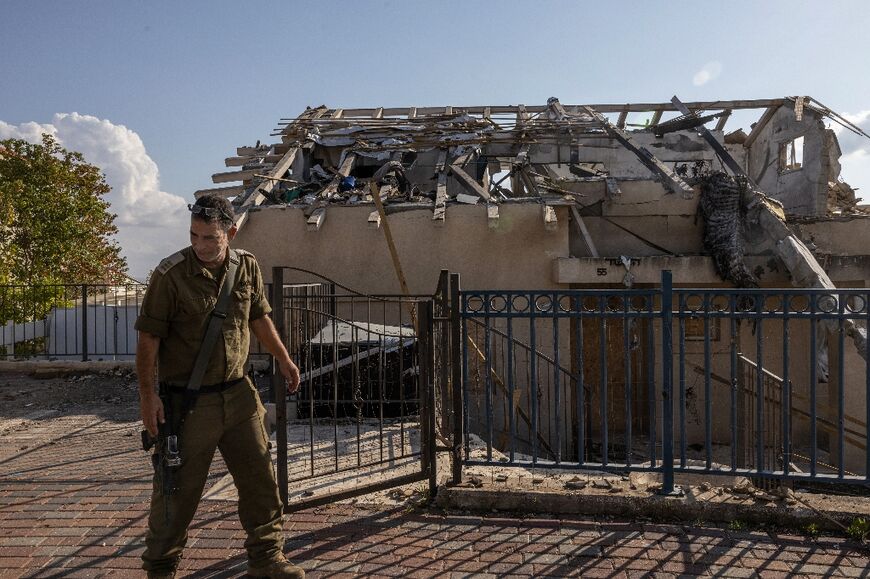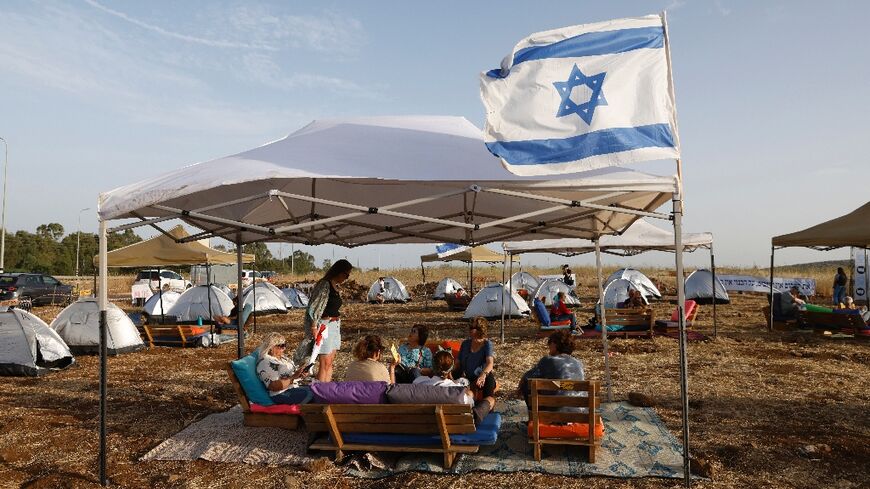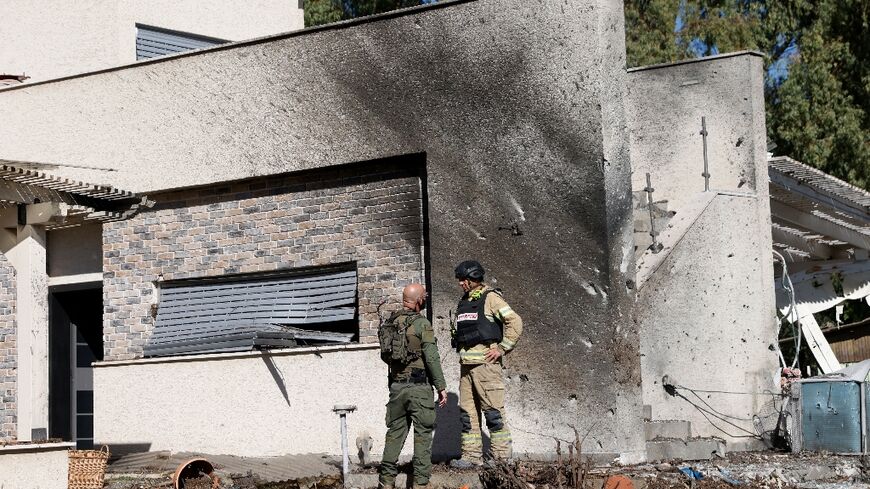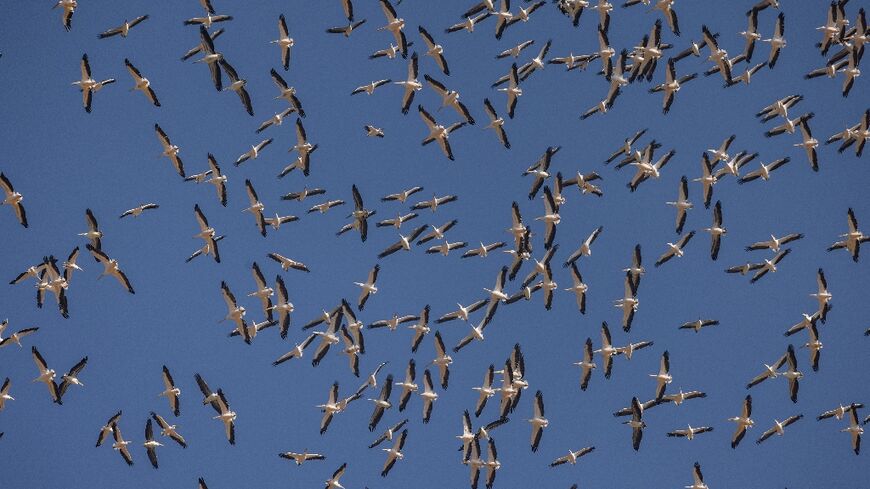A long way home for residents of Israel's 'most bombarded' town
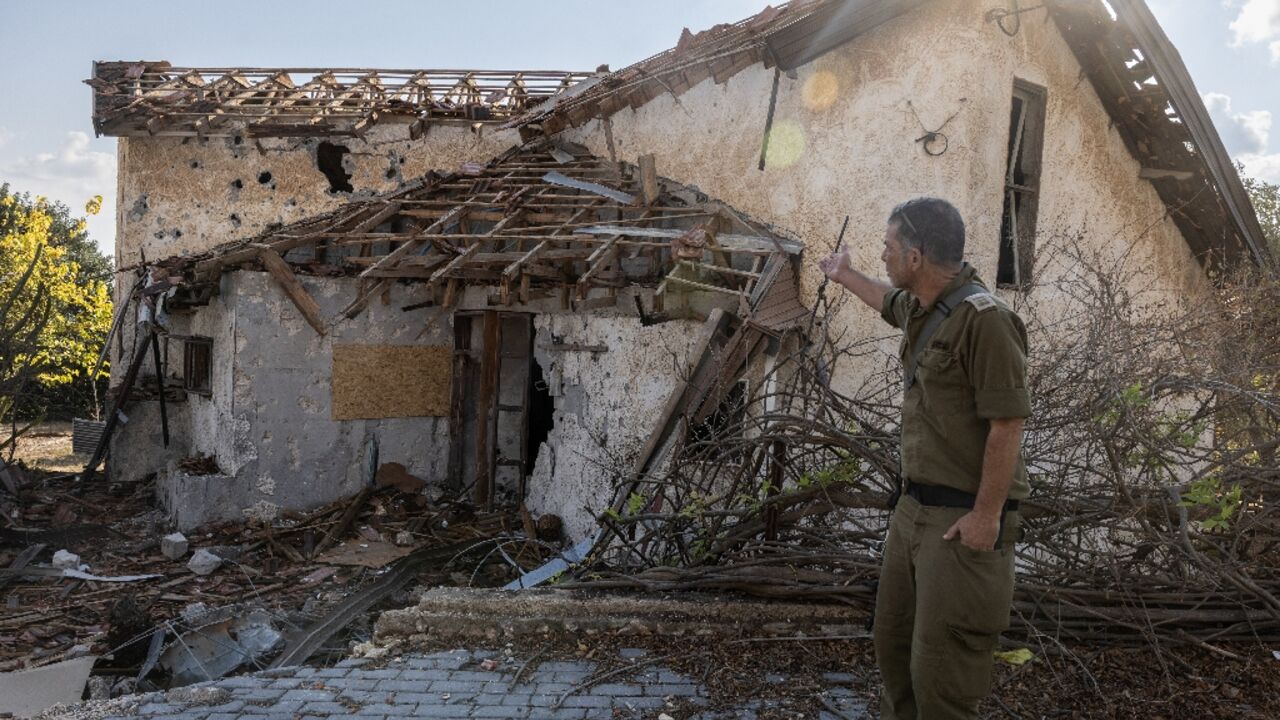
From a bunker in Metula, a town in Israel's bombarded north, David Azoulai showed off the remnants of burnt-out ordnances as if they were artifacts from a museum.
"The rockets are from the east... Iran, Russia and North Korea," he said, handling the mishappen shrapnel of projectiles produced there.
But the shards -- from anti-tank missiles, rockets and even parts of a sophisticated drone -- were not precious antiquities, but artillery fired over the past year by Hezbollah, the Iran-backed Shiite Islamist group, from southern Lebanon.
They were seen by AFP journalists who went to the restricted zone as part of a press visit organised by the Israeli military.
Azoulai, the head of the regional council of Metula, described his town as "the most bombarded" along Israel's border with Lebanon.
Having headed the council for the past decade, he no longer sits in a regular office, but in the bunker that is part of the town's wartime operations centre.
Metula has been emptied of its 2,000 residents for more than a year -- since Hezbollah began shelling Israel in October 2023, after Hamas militants in Gaza carried out an unprecedented attack on southern Israel.
Azoulai said he no longer manages regular municipal matters but only those relating to the ongoing war, including civilian fatalities.
"Over the last year, we have done everything except take care of our citizens," said Azoulai, explaining that Metula's residents are now scattered nationwide.
- 'Nothing to return to' -
Tensions have ramped up in recent weeks after Israeli ground troops entered Lebanon to battle Hezbollah fighters there in late September.
Israel said its goal is to remove the threats posed by the armed factions and enable residents of northern Israel, including those from Metula, to return home.
Israel said more than 60,000 people have left their homes in the north since Hezbollah began firing rockets in October last year.
At least 113 people have been killed on the Israeli side, including 12 in annexed Golan Heights, over that period, according to official Israeli figures.
More than 3,130 people have been killed in Lebanon since the cross-border exchanges began, according to Lebanon's health ministry, most of them since September 23.
Azoulai and other residents who spoke to AFP said that returning would be a lengthy process, up to four years of rehabilitation in a town where he said more than 350 -- or some 60 percent -- of homes and other municipal buildings have been totally destroyed by the war.
Galit Yosef was evacuated from her home -- which sits at the peak of the hillside town -- on October 16 last year and has returned only a few times.
"There is nothing to return to," said the 60-year-old who previously worked for the municipality.
"My home was hit several times" by anti-tank missiles and other artillery "and in the end it caught on fire", she explained.
Yosef has been living in Tiberius, in the hotel where she was evacuated to, and has watched as Metula family, friends and neighbours have slowly relocated elsewhere.
"We can't make any plans to go back right now," she said, adding that "every day another house is hit and another and another".
- Pining for home -
After more than a year without civilian life, Metula has an eeriness to it, with many homes damaged by rocket fire, roads and sidewalks pockmarked by shrapnel and the abandoned vehicles charred and burnt.
At least two homes seen by AFP were completely destroyed, their roofs blown out by a missile, their walls stained black from fire.
Metula resident Aviv -- identified only by his first name as he is part of the civil security team -- said that even if the army wrapped up the war in Lebanon and the government permitted, returning home for some would "take time".
For many like Aviv, who has been living in the town for most of the past year assisting Azoulai and the army with the security arrangements, the war has taken its toll.
He said a rocket fired from Lebanon killed a farmer and his team of four foreign agricultural workers a few days ago.
"I was the first to arrive at the scene and it is something that I just cannot describe," Aviv said of the deaths.
Azoulai insisted that residents will only return if there is complete security.
"I don't hear the government saying that we can return but as soon they do, we will decide if it is safe," he said.
"It will not be easy to rehabilitate Metula, but we will rehabilitate it."


